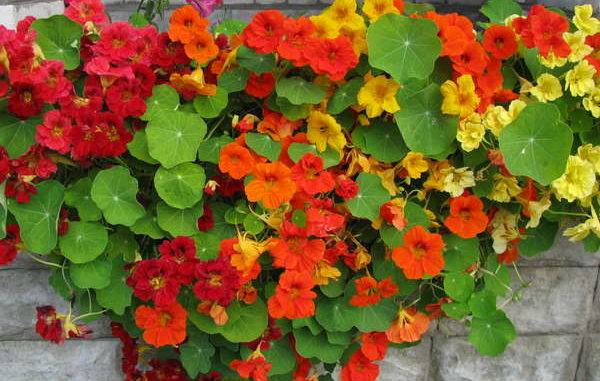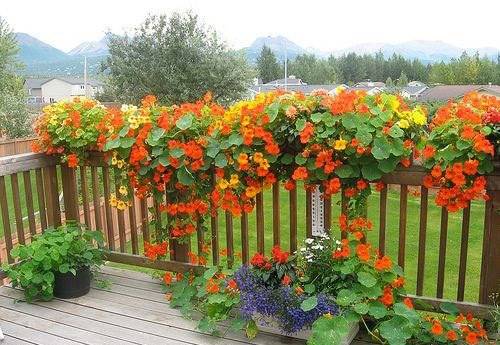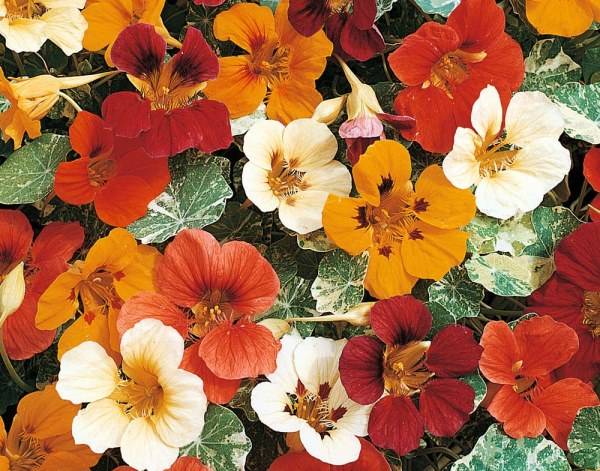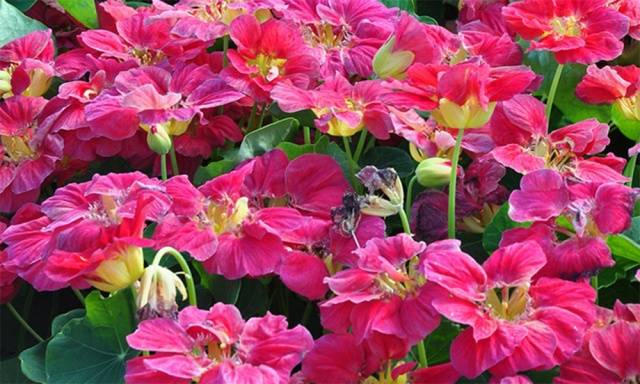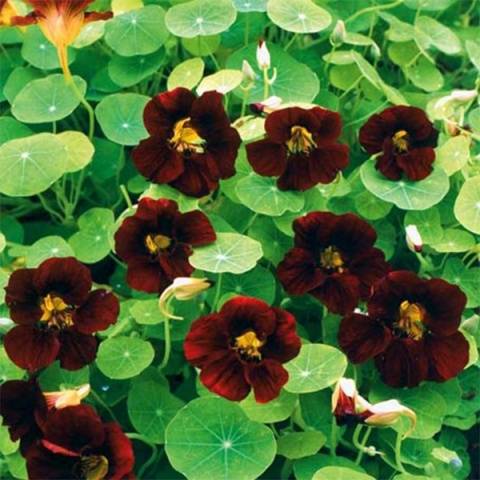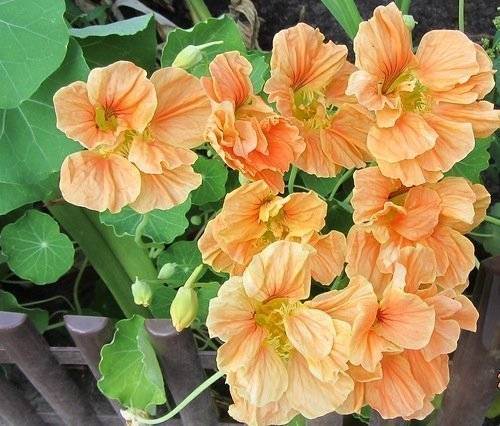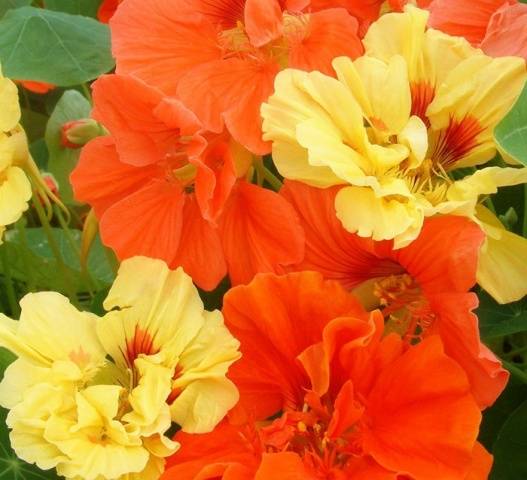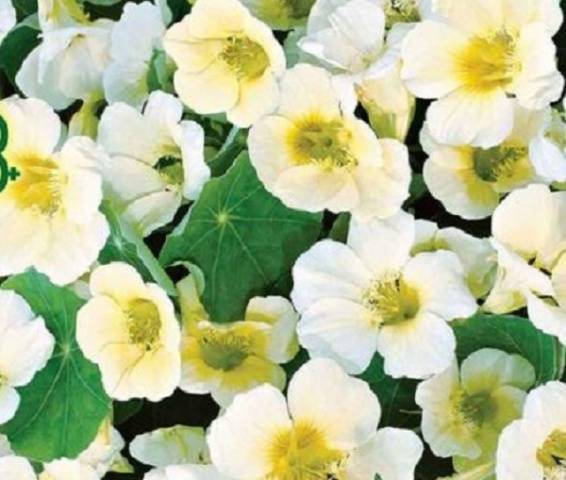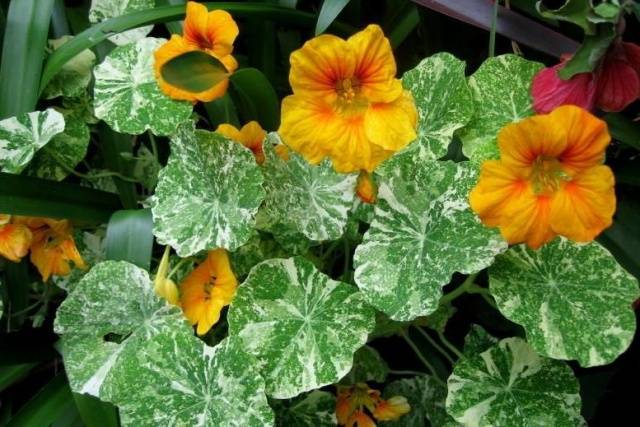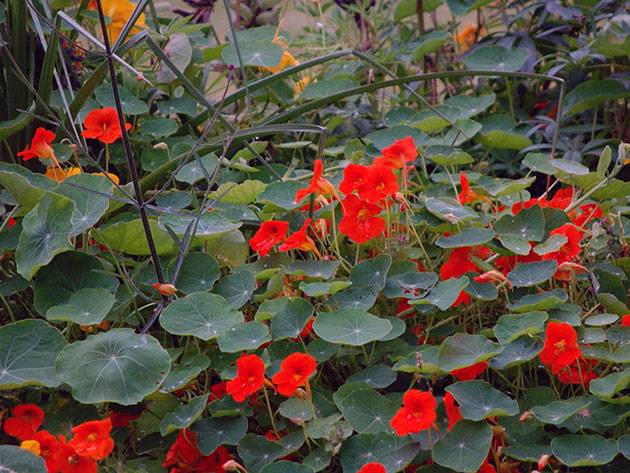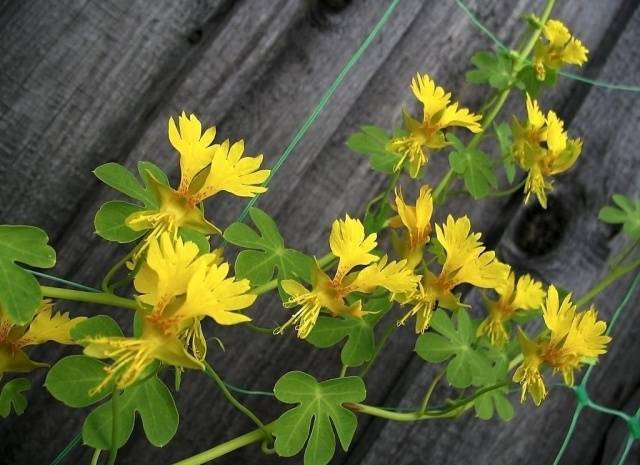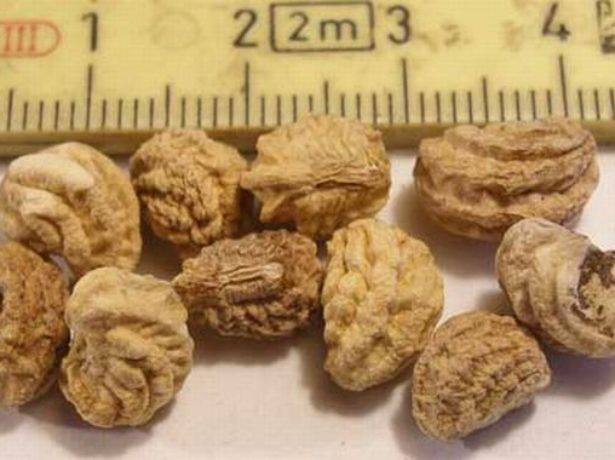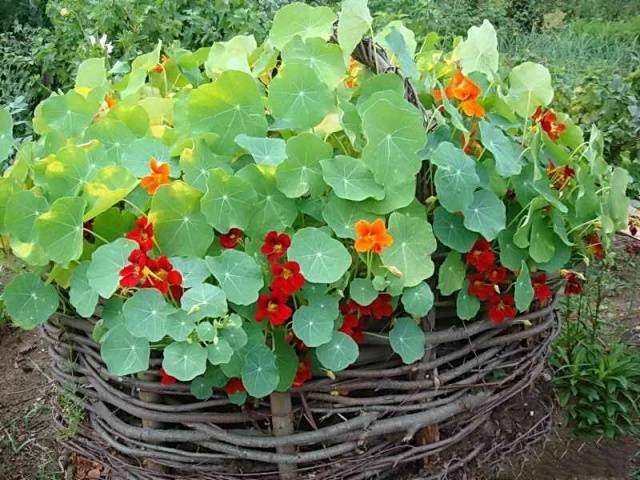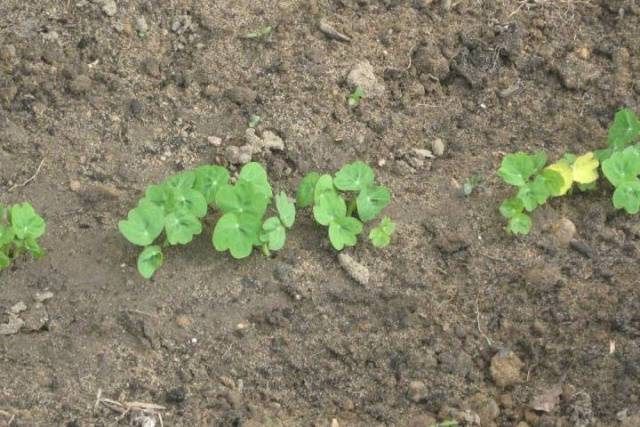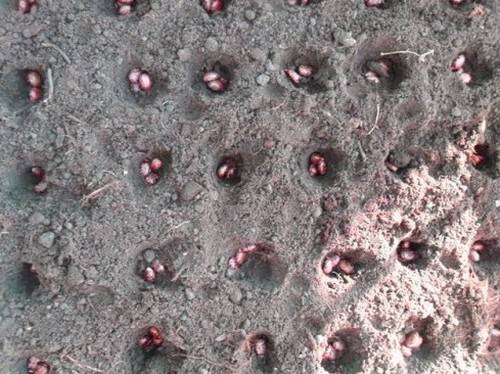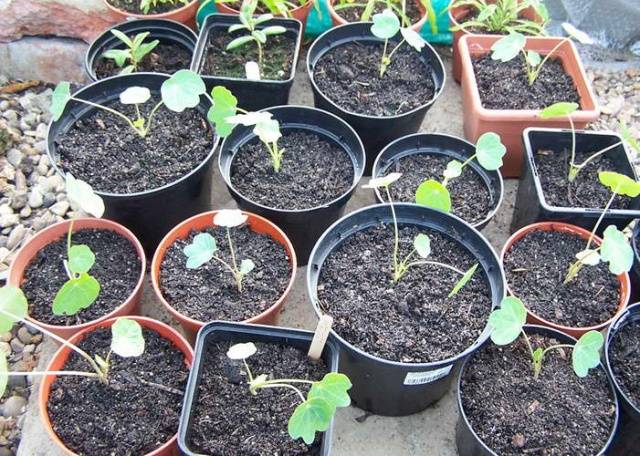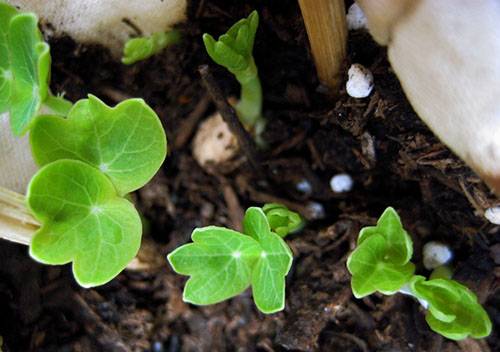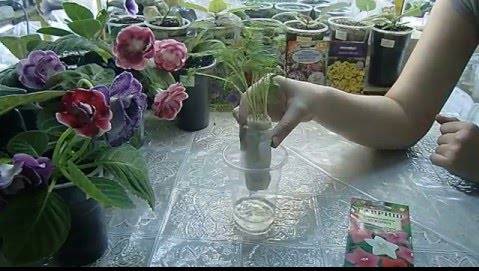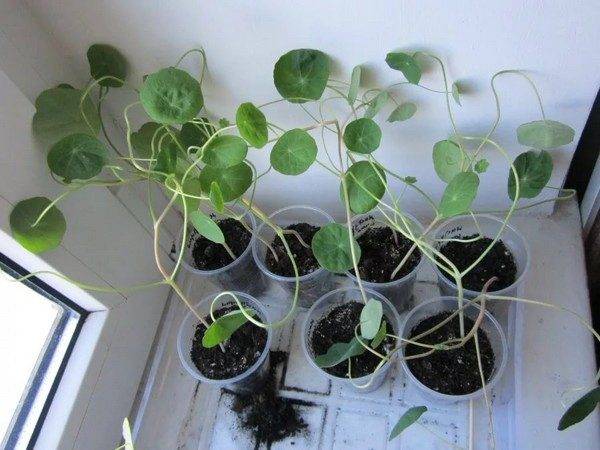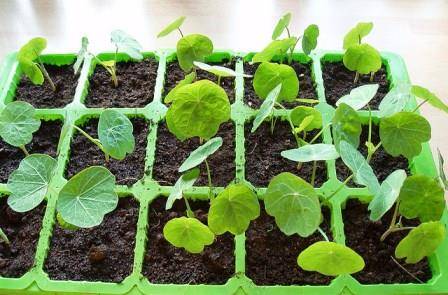Content
There are so many beautiful flowers for decorating personal plots, but not all of them can be grown by beginners. Many handsome men are distinguished by a very capricious character (lobelia, petunia), or even completely poisonous and require very careful handling at all stages of cultivation (delphinium, foxglove).
And there are plants that are distinguished not only by their unpretentiousness (they bloom even better on poor soils), but also by their versatility (they are good in flower beds, and in beds and in balcony boxes and in hanging pots). They also have valuable medicinal and nutritional properties. Some experienced flower growers have probably already guessed that we are talking about nasturtium or capuchin, as it is often called in most European countries. The scientific Latin name for nasturtium is tropaeolum, which means "small trophy". This is most likely due to the fact that the leaves of most species are shield-shaped, while the flowers resemble a helmet.
The popular names of this popular flower reflect its many properties: Indian watercress, krasul, colored lettuce.
Useful properties of nasturtium
Indeed, nasturtium is not only a beautiful flower, the sight of which in itself is able to delight the eye, and the aroma - to delight the soul. All the ground parts of nasturtium - stems, leaves, flowers and seeds - are edible and have medicinal properties. Some species of nasturtium native to South America even produce edible and delicious tubers.
Leaves, buds and flowers are used in salads, hot dishes and to decorate festive meals. They can be added to a variety of sauces, oils and cheeses for a savory flavor. The fruits can be pickled and then you get a delicious dish that is in no way inferior to capers. And if you dry and grind nasturtium seeds, then the resulting powder can completely replace ground black pepper.
And the set of medicinal properties of this flower also can not fail to delight. It has been found that it has anti-inflammatory, expectorant, antiseptic, laxative, diuretic, antibiotic and antiscorbutic properties.
Nasturtium juice can help with hair loss, certain skin conditions and kidney stone problems.
Of course, during treatment, one should be careful and observe a healthy measure, since an overdose can cause irritation of the gastrointestinal tract.
Variety of species
The genus Nasturtium includes about 80 species of perennial plants native to Central and South America. Since the flowers are quite thermophilic and do not tolerate freezing temperatures, in Russia we can enjoy them only during the summer period. In culture, various types of nasturtium have been widely known since the middle of the 19th century.
Among the large number of species and varieties, it makes sense to distinguish only a few varieties.
Bush
Shrub nasturtiums, to which the plants of Malaya Nasturtium mainly belong. They grow in small compact bushes, no more than 35-40 cm in height. The most interesting and exotic varieties in this group are:
-
Cherry rose - this variety can be classified as terry.
The color of the flowers is rather rare - pink-crimson, so the name is completely true. -
Black Velvet or Black Lady - a variety of nasturtium with a very unusual color of flowers.
They are brown-burgundy, almost black. At the same time, the leaves also have a dark green tint. -
Vesuvius - the color of the flowers is very delicate.
Against the background of a smooth transition of pink to orange, there are faint reddish spots.
Curly or ampelous
Scourges of nasturtium, which grow up to 3-4 meters in length, can be put on a vertical trellis or hung down from a basket and even cover a flower bed with them.
-
Terry mix - this variety is interesting, first of all, for its double lush flowers, which can be of a wide variety of shades.
-
Yeti - the leaves have an emerald hue, and the flowers are very light, almost white, decorated with yellow spots.
-
Alaska - a unique variety of nasturtium, when the plant catches the eye even without flowers, thanks to the painted decorative leaves.
-
Diamond - a variety with very bright and rich red flowers.
Separately, there is nasturtium Canary or foreign. This species is the only one unable to form seeds in Russian climatic conditions.
But it looks very exotic - the leaves are heavily cut, and the flowers rather resemble the wings of some birds. Planting and caring for it is no different from other varieties.
Features of seeds
The seeds of nasturtium are quite large, from 10 to 30 pieces can fit in one gram. Germination rate is about 70% and lasts 4-5 years.
If you want to collect and sow seeds from your own nasturtium flowers, keep in mind that at first they are combined three pieces together and are green in color. As they ripen, the seeds increase in size and turn whitish. Fully ripe nasturtium seeds fall off easily, so it is recommended to pick them somewhat unripe. In a warm and dry room, the seeds ripen easily to the required state, become wrinkled with shallow grooves, as in the photo below.
Despite the fact that nasturtium itself is very thermophilic and does not tolerate frost, its seeds may well overwinter in the ground and retain germination. This explains the fact that this flower often reproduces by self-sowing.
If you are going to use the traditional method of sowing seeds in the ground for growing nasturtium, then you must first soak the seeds for a day in water or in a solution with stimulants. In this case, the hard shell will soften, and the seeds will germinate more quickly and amicably. It will be even more effective when soaking to fill the seeds with hot water and leave in it for a day.
Sowing dates
To answer the question of when to plant nasturtium, you need to understand how and where you want to grow it.
Considering the fact that neither the seedlings nor the grown seedlings of nasturtium can stand frosts at all, sowing its seeds in open ground is possible only at the end of May (for the conditions of the middle lane). And in this case, you can enjoy the flowering of nasturtium only from mid-July.
Therefore, if you want nasturtium to bloom in your garden in June and delight you with flowering until autumn, you must sow its seeds for seedlings no later than April.
It so happens that they want to grow nasturtium for flowering on the balcony or in hanging pots and containers. In these cases, seeds for seedlings can be sown even in March and generally at any time of the year. If only you can provide the nasturtium with a bright and frost-free environment for flowering.
Sowing seeds in the ground
This method is universal and most common among gardeners, since in the spring, when there is a lack of time, there is no point in fiddling with nasturtium seedlings, which germinate quite easily and relatively quickly. In addition, nasturtium has a very delicate root system, which hardly tolerates a pick and can lag behind in growth after transplantation.
And when the seeds are planted directly into the ground, under favorable weather conditions, after germination, the sprouts quickly gain strength, and their root system is not subjected to unnecessary stress. If in your area even at the end of May the weather can be unpredictable, then it is better to cover the plantings with a layer of non-woven material.
Planting nasturtium seeds in a flower bed is not difficult. The soil is spilled with hot water before planting. Then, 1.5-2 cm depressions are made in the ground, and 2-3 seeds are placed there. Nasturtium seeds are covered with loose soil and slightly compacted on top. Then, if necessary, the flower bed is covered with spunbond, lutrasil or other non-woven material. In outdoor conditions, shoots can be expected in about two weeks.
The video below shows in detail the process of sowing nasturtium seeds in the ground.
Planting seeds for seedlings
Despite the fact that growing nasturtium by direct sowing into the ground has its advantages, this method also has disadvantages:
- Seeds can take a very long time to germinate, and in case of cold or very rainy weather, they may not germinate at all.
- Blossoming of nasturtium will come quite late, in the middle of July.
- If the soil in the flowerbed is not very suitable for the flower, for example, with a high content of clay particles, then problems with the germination of nasturtium are also possible.
Therefore, if you want to guaranteed to get already blooming nasturtium by the beginning of summer or by any other date of your choice (even by March 8), then it is better to use the seedling method. Moreover, in recent years, many ingenious ways of planting nasturtium seedlings have been invented, which facilitate planting and provide a guaranteed result.
Traditional way
Traditionally, nasturtium is planted for seedlings, like any other annuals, in small containers, so that later, after the appearance of two or four leaves, the plants are planted in separate pots. For nasturtium, this method is not the best, although it is still used by some growers. As mentioned above, nasturtium does not like to disturb its root system, so the best option would be to sow the soaked seeds right away in separate containers.
It can be ordinary cups, and homemade cups without a bottom, and peat pots, and peat tablets. The planting depth should not exceed 1-1.5 cm. The soil for planting must be selected very light, with a high content of sand or perlite with a weakly acidic reaction.
Seeds usually germinate at a temperature of + 20 ° + 22 ° C for a week or two. After germination, they must be placed in the brightest place.
Artificial auxiliary light bulbs are not able to replace the sun completely and the seedlings can stretch out. Therefore, it is advisable to place nasturtium seedlings for at least a few hours a day on a sunny windowsill.
The video below will clearly demonstrate the entire process of growing nasturtium from seed before planting in a flower bed and flowering.
Planting in sawdust
This method saves space for sowing, accelerates the germination of nasturtium seeds and, most importantly, facilitates further transplantation / picking.
The seeds can initially be planted in one container. Its size depends on the number of seeds that you are going to sow. You will need sawdust, preferably hardwood. Coniferous sawdust will not work because of the high resin content in them. You can also use compressed sawdust pellets, which are sold for use in litter boxes.
Spread a layer of sawdust about 3-3.5 cm thick in the prepared container and fill them with a small amount of boiling water so that they are well moistened. But there is no need to make a swamp.
Place nasturtium seeds (even without presoaking) in holes made in sawdust, at a distance of about 4-6 cm. The sawdust should be quite hot, so that only your hand can support it. After sowing, close the container with a bag to create a greenhouse effect and put it on germination in the warmth.
After sprouting, after a few days, nasturtium sprouts can be carefully transplanted into separate pots with ready-made soil. In this case, the transplant is absolutely painless, since on the one hand the sawdust is very loose and light and the roots do not bother at all, and on the other hand, the plants are still quite tiny and easily tolerate the transplant.
Thus, this method guarantees you a fast and almost 100% germination rate.
This method is described in detail in the video below.
Germinating nasturtium without soil
In recent years, the method of planting seeds of various plants in rolls or in "snails", as they are sometimes called, has gained particular popularity. To do this, you will need:
- A strip of dense polyethylene or a substrate under the laminate, 10 cm wide, and its length depends on the number of nasturtium seeds.
- A strip of thick toilet paper of the same size.
Toilet paper is applied to the laid out strip of polyethylene and abundantly moistened with an epin solution (3 drops per 1 liter). Along the top edge of the toilet paper, departing from the edge of 1.5 cm, nasturtium seeds are evenly laid out every 4-5 cm from each other.
After the last seed, there should be another 10-15 cm of space of the strip free from seeds.
Beginning with the first seed, gently roll the strip into a roll, making sure that the seeds stay in place. When folded, you can tighten the roll with a clerical elastic band or glue it with tape. Then place the roll with the bottom side in a small container of water. And put everything together in a plastic bag. The planting process is over. Now you just need to take the roll out of the bag every day, airing the seeds and monitoring their germination. When the first sprouts appear, the roll is already placed without a bag in a bright place.
As soon as the seedlings have two leaves, you can, by unrolling the roll, carefully transplant the plants in separate containers.
In this video, you can watch the process of planting nasturtium seeds in a roll in all details.
Picking and basic requirements of nasturtium for flowering
Picking nasturtium usually causes great difficulties for flower growers, and therefore it is recommended to do without it whenever possible. If, nevertheless, it so happened that your seedlings are very elongated, and you do not know how to fix the situation, then when transplanting, do not be afraid to bury the nasturtium plants in the ground at the very base of the first leaves. If possible, plant nasturtium in pots with plenty of space in height so that after sprouting, you can add soil to the plants.
But the traditional pinching of nasturtium shoots does not always lead to a positive result.
For the successful cultivation of nasturtium and abundant flowering, several basic rules should be considered:
-
When using nitrogen for fertilizing, nasturtium will have an abundance of leaves, but problems with flowering are possible. Therefore, the best fertilizers will be phosphorus-potassium.
- Young nasturtium seedlings need moderate to medium watering, but with the appearance of flowers with watering, you need to be careful. Since the abundance of moisture not only inhibits flowering, but the roots of the flower can even rot.
- When grown in a sunny location, nasturtium will bloom earlier and bloom more profusely.In partial shade, she can also feel good, but all development processes will be slowed down.
Now that all the secrets and features of this flower have been revealed, even a beginner can grow it. Try and choose any of the planting methods described above and enjoy the beauty, aroma and health benefits of nasturtium.
